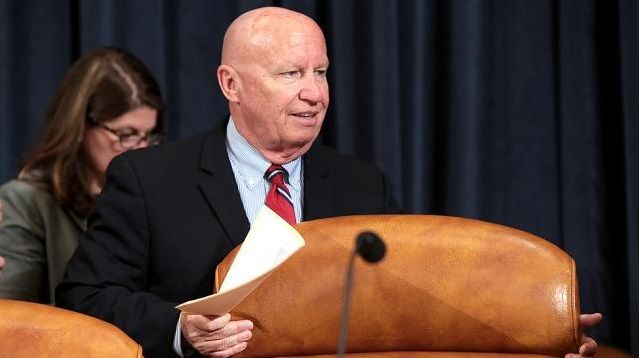Wednesday is a big day for Republicans, with leaders expected to finally unveil the framework of their tax reform plan, following months of speculation, negotiations and controversy.
It's a high-stakes moment for a party looking for a big legislative win and comes as a last-ditch effort to pass the GOP's other big item, ObamaCare repeal, is teetering in the Senate.
Republicans on the House Ways and Means Committee are meeting Sunday and Monday to work on the blueprint. And the full GOP House will reportedly meet on Wednesday to be briefed on the plan before its made public.
The White House is also ready to make a full court press for the plan.
President Trump in his weekly address laid out his principles for tax reform, including making the code simple, cutting taxes for the middle class, making the system more attractive for investment and bringing back trillions in overseas earnings.

Unveiling the framework will be a big step for the so-called "Big Six," who are negotiating the deal, Speaker Paul Ryan (R-Wis.), House Ways and Means Chairman Kevin Brady (R-Texas), Senate Majority Leader Mitch McConnell (R-Ky.), Senate Finance Chairman Orrin Hatch (R-Utah), Treasury Secretary Steven Mnuchin and National Economic Council Director Gary Cohn.
But there are still deep divisions among Republicans on the plan.
A report in the Washington Post said White House officials are considering keeping the top individual tax rate at 39.6 percent and dropping plans to scrap the estate tax.
Trump also told lawmakers at a recent meeting that the rich would not come out ahead under his plan.
But those ideas are likely to get pushback from GOP lawmakers.
Another report claimed the Big Six are likely to abandon calls to lower the corporate tax rate to 15 percent. Republicans agree the current 35 percent rate should be cut, but are uncertain by how much. Trump has pushed for 15 percent, but Ryan and Mnuchin have both said that figure could be hard to achieve.
Hatch has also cautioned the framework isn't set in stone and there could be further changes before a final tax bill.
The framework unveiled Wednesday, though, will set the tone for the debate, with much of the work still ahead.
Lawmakers are already feeling the pressure.
Conservative groups are warning Republicans that falling short on tax reform could have disastrous effects, turning voters away and crippling the party.
“If the Republicans can’t get this tax deal done, we’ll be facing a GOP crisis,” Adam Brandon, the president of FreedomWorks, told reporters Friday. “It could be the end of the GOP as we know it.”
Republicans will also be eager to get any Democrats on board, particularly those in red states up for reelection in 2018.
Sen. Heidi Heitkamp (D-N.D.) attended a rally in her home state with Trump and has said she is willing to hear him out on tax reform.
Sen. Joe Donnelly (D-Ind.), also up in 2018, has met Trump on tax reform and joined Vice President Mike Pence at a tax reform event in his home state Friday.
Of course, tax reform cannot move ahead unless the House and Senate pass budget resolutions to initiate the reconciliation process, which will allow Republicans to bypass a Senate Democratic filibuster on tax reform.
An agreement between key Senate Budget Committee lawmakers to allow a reported $1.5 trillion tax cut into the budget’s instructions seemed to pave the way for that panel to move ahead with its resolution.
House Budget Committee Chairman Diane Black (R-Tenn.) is hoping that the new tax reform details coming up will satisfy the final House Freedom Caucus holdouts to the House’s own budget resolution, and allow it to move forward on the floor.
Both the House and Senate will be in session for the final week of September and there are a number of finance-related hearings on the docket.
The Securities and Exchange Commission will also be in the spotlight after it disclosed a hack of its EDGAR financial information database. The SEC said the hackers may have been able to use the information to profit from insider trading.
The hack follows a massive breach at credit reporting agency Equifax, which may have exposed personal information on as many as 143 million Americans.
Already lawmakers are pressing the SEC to beef up requirements on when companies must disclose hacks.
Expect SEC Chairman Jay Clayton to get questions on the hack when he testifies Tuesday at an agency oversight hearing before the Senate Banking Committee
This post recieved an upvote from minnowpond. If you would like to recieve upvotes from minnowpond on all your posts, simply FOLLOW @minnowpond
Downvoting a post can decrease pending rewards and make it less visible. Common reasons:
Submit
Great
Downvoting a post can decrease pending rewards and make it less visible. Common reasons:
Submit
tax should be minimised.
Downvoting a post can decrease pending rewards and make it less visible. Common reasons:
Submit
Nice
Downvoting a post can decrease pending rewards and make it less visible. Common reasons:
Submit